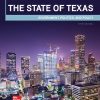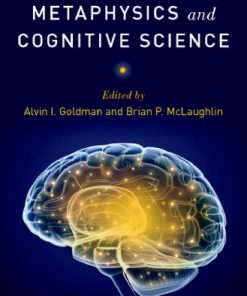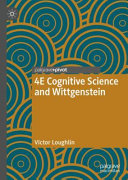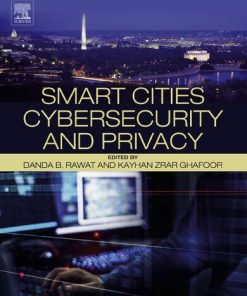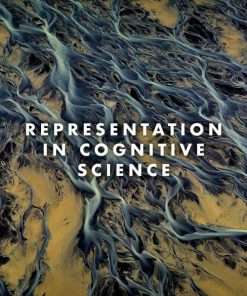Cybersecurity and Cognitive Science 1st Edition by Ahmed Moustafa 0323906966 9780323906968
$50.00 Original price was: $50.00.$25.00Current price is: $25.00.
Cybersecurity and Cognitive Science 1st Edition by Ahmed Moustafa – Ebook PDF Instant Download/DeliveryISBN: 0323906966 9780323906968
Full download Cybersecurity and Cognitive Science 1st Edition after payment.
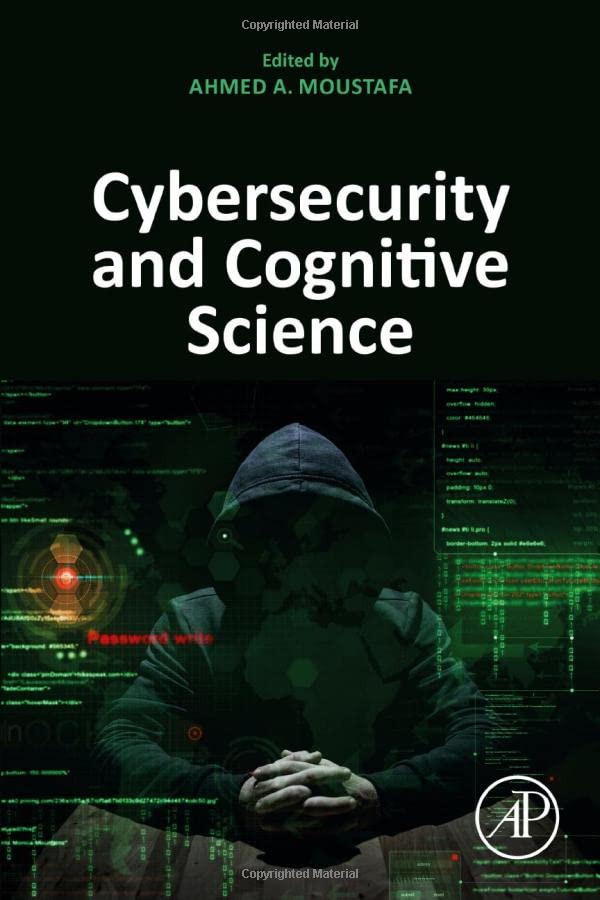
Product details:
ISBN-10 : 0323906966
ISBN-13 : 9780323906968
Author : Ahmed Moustafa
Cybersecurity and Cognitive Science provides the reader with multiple examples of interactions between cybersecurity, psychology and neuroscience. Specifically, reviewing current research on cognitive skills of network security agents (e.g., situational awareness) as well as individual differences in cognitive measures (e.g., risk taking, impulsivity, procrastination, among others) underlying cybersecurity attacks. Chapters on detection of network attacks as well as detection of cognitive engineering attacks are also included. This book also outlines various modeling frameworks, including agent-based modeling, network modeling, as well as cognitive modeling methods to both understand and improve cybersecurity.
Cybersecurity and Cognitive Science 1st Table of contents:
Part I: Social engineering, security, and cyber attacks
Chapter 1: Social engineering attacks and defenses in the physical world vs. cyberspace_ A contrast study
Abstract
Acknowledgments
1: Introduction
2: Terminology and methodology
3: Characterizing social engineering attack model, techniques, and defenses in the physical world
4: Characterizing social engineering attack model, techniques, and defenses in cyberspace
5: Contrast analysis
6: Conclusions
References
Chapter 2: A dual integrated dynamic intrusion detection system (DID-IDS) for protection against network and social engineering attacks
Abstract
1: Introduction
2: Detection of information system and social engineering intrusion attacks
3: Prior computer system intrusion detection systems
4: Prior social engineering intrusion detection methods
5: A new dual integrated dynamic intrusion detection system (DID-IDS)
References
Chapter 3: Working from home users at risk of COVID-19 ransomware attacks
Abstract
1: Introduction
2: Overview of ransomware
3: Challenges and issues with ransomware
4: Ransomware attack vectors
5: Existing defense mechanism and control gaps
6: Mitigation model against ransomware
7: Regular and consistent data backup
8: Conclusion
References
Chapter 4: Individual differences in cyber security behavior using personality-based models to predict susceptibility to sextortion attacks
Abstract
1: Introduction
2: Social engineering and cyber sextortion
3: Personality-based models
4: Current study
5: Method
6: Results
7: Discussion
8: Conclusion
References
Chapter 5: Deconstructing security and privacy issues: The development of a logic for capturing mismorphisms
Abstract
1: Introduction
2: A brief background on semiotics
3: A semiotic model for mismorphisms
4: Beyond semiotic triads
5: A logic for mismorphisms
6: A preliminary catalog of mismorphisms
7: Future work
8: Conclusion
References
Part II: Behavioral studies of cybersecurity
Chapter 6: Are you anonymous? Social-psychological processes of hacking groups
Abstract
1: Introduction
2: Context
3: Social identity
4: Interpersonal perception
5: Group processes
6: Informed decision making
7: Conclusion
References
Chapter 7: On the relation between hacking and autism or autistic traits: A systematic review of the scientific evidence
Abstract
1: Introduction
2: Methods
3: Results
4: Conclusions and future directions
References
Further reading
Chapter 8: An introduction to cyberbullying
Abstract
1: A brief overview of traditional bullying
2: The emergence of digital technologies and cyberbullying
3: Definitional issues of cyberbullying
4: Unique features of cyberbullying
5: The different forms of cyberbullying
6: The prevalence of cyberbullying
7: The impact of cyberbullying
8: Conclusion
References
Chapter 9: The impact of cyberbullying across the lifespan
Abstract
1: Introduction
2: The impact of involvement in cyberbullying during the elementary years
3: The impact of involvement in cyberbullying during adolescence
4: The impact of involvement in cyberbullying during emerging adulthood
5: The impact of involvement in cyberbullying during adulthood
6: Challenges associated with understanding the impact of cyberbullying
7: Conclusion
References
Chapter 10: Cyber situational awareness issues and challenges
Abstract
Acknowledgments
1: Introduction
2: The technological perspective
3: The socio-cognitive perspective
4: The organizational perspective
5: Reasoning about adversarial behavior
6: Research directions
7: Conclusions
Appendix A: Interview methodology
References
Chapter 11: Development and application of the Information Security Core Human Error Causes (IS-CHEC) technique
Abstract
1: Introduction
2: IS-CHEC technique
3: General discussion
4: Conclusions and future work
References
Part III: Machine learning and modeling applications to cybersecurity
Chapter 12: Machine learning for the security of healthcare systems based on Internet of Things and edge computing
Abstract
Acknowledgments
1: Big data in health care
2: Privacy-preserving machine learning
3: Securing IoMT from ML-based attacks
References
Chapter 13: Lying trolls: Detecting deception and text-based disinformation using machine learning
Abstract
1: Introduction
2: Related work
3: Methodology
4: Results and analysis
5: Conclusion
References
Chapter 14: Modeling the effects of network size in a deception game involving honeypots
Abstract
1: Introduction
2: Deception game
3: Experiment
4: Results
5: The IBL model
6: Discussion
References
Chapter 15: Computational modeling of decisions in cyber-security games in the presence or absence of interdependence information
Abstract
Acknowledgment
1: Introduction
2: Background
3: Experiment
4: Results
5: The IBL model
6: Execution of IBL model in the security game
7: Results
8: Discussion
9: Conclusion
People also search for Cybersecurity and Cognitive Science 1st:
data science or cyber security which is better
is cognitive science worth it
cognitive cybersecurity
cognitive security a comprehensive study of cognitive science in cybersecurity
cognitive science cyber security
Tags:
Cybersecurity,Cognitive Science,Ahmed Moustafa,psychology,neuroscience
You may also like…
Biology and other natural sciences - Plants: Agriculture and Forestry
Handbook of Banana Production, Postharvest Science, Processing Technology, and Nutrition 1st Edition
Politics & Philosophy - General & Miscellaneous Philosophy
Metaphysics and Cognitive Science Illustrated Edition Alvin I Goldman
Technique - Nanotechnology
Biology and other natural sciences
Science (General) - Research & Development
4E Cognitive Science and Wittgenstein 1st Edition Victor Loughlin
Computers - Security
Mathematics - Applied Mathematics
(EBook PDF) Integrable Systems 1st Edition by Ahmed Lesfari 1119988578 9781119988571 full chapters
Politics & Philosophy - Social Sciences
Politics & Philosophy
Representation in Cognitive Science 1st edition by Nicholas Shea 0192542205 9780192542205



